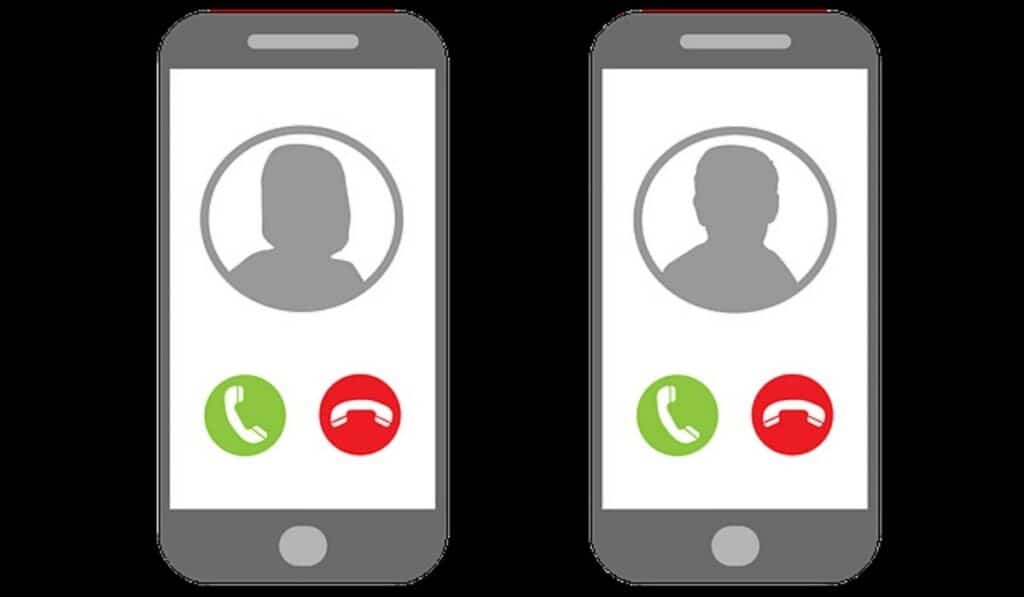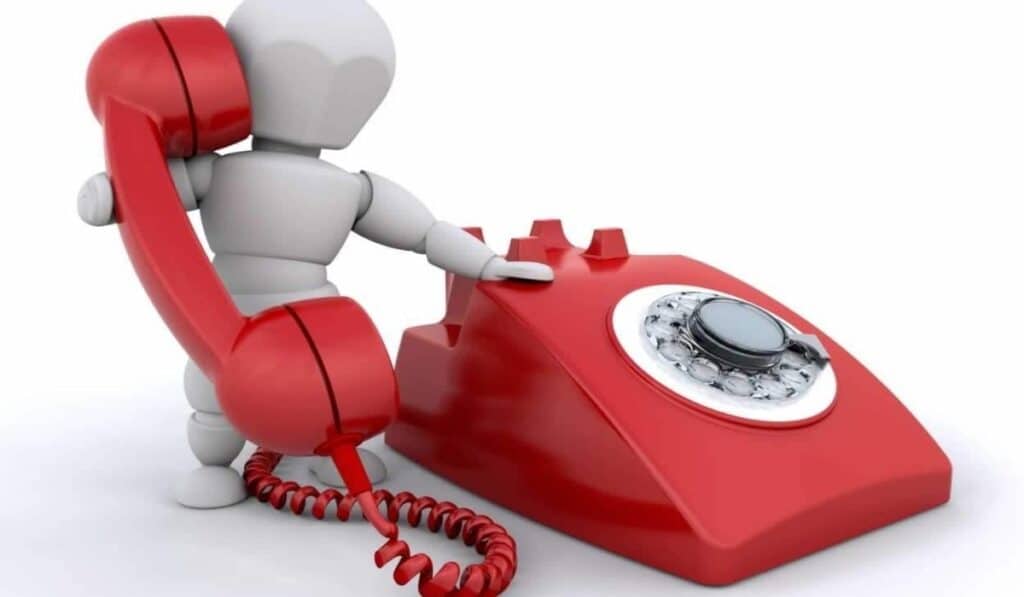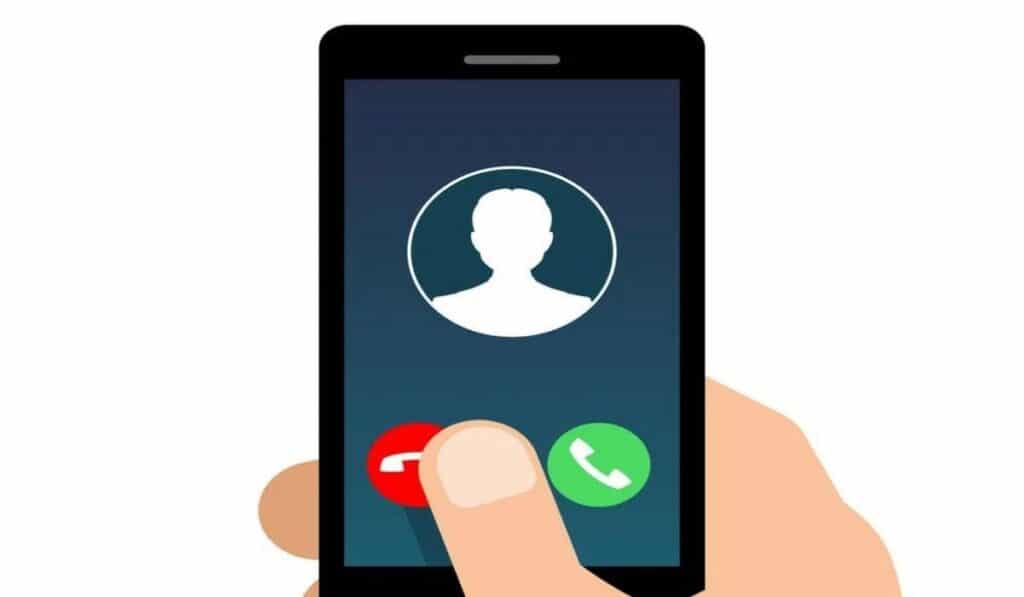You’re on your day, doing your work, and then a phone call rings. “Who’s this?” you ask yourself as you pick off your mobile to examine the caller’s ID. Surprised, you realize that there’s no particular phone number calling. In addition, you are shocked to find the caller ID, which reads “Restricted.” You wonder about it as you conduct an easy Google search to determine the meaning behind it. You find the article to discover the bottom of the restricted call. Are your concerns based on fact, or are they bogus? Let us explain that they could be both. Here’s why.
What Do Restricted Calls Mean?
In the past, we’ve become accustomed to seeing caller IDs to the point where we’ve come to expect it. You can therefore imagine how tense it is to receive a call from a number that is not available. There is a possibility of a growing feeling of anxiety when you consider whether to answer your call.
Put the term “restricted number” is the method used by a person to keep others from viewing their personal number. They’ve effectively removed their number from view by others so that no one is able to access it. If you get a phone call from a business with a restricted number, they aren’t allowed to contact you back, and they won’t give you their number via the caller ID or in your call log.
There are a variety of reasons people use a limited number to call a call. Some use it to protect their security and privacy as an additional layer of security, and they do it to safeguard themselves from being harassed or harassed when they call. It’s not surprising that lots of people aren’t able to take action when they get an unsolicited call. A majority of people think it’s unethical to take a restricted call which is understandable. But you don’t be sure who is calling you. If you’re looking to find out who’s calling you on the other side of a phone call that’s restricted, There are a variety of options to think about.
Read Also : 5 Best Way to Track Someone Phone Location In Android and IOS Phone
Who Are Making These Restricted Calls?

Individuals and businesses can make a limited call if they choose to. They need to make use of a restricted number in order to make sure their number is not leaking. There are numerous reasons why an individual or business could choose to do this. Don’t leap to the conclusion that the person making calls to you could be a fraud seller with ulterior motives.
One reason to use restricted numbers instead of the standard one is to ensure security by keeping them private. For instance, solicitors, as well as collection agencies, make use of the numbers to enhance security. The majority of the tasks collection agencies can cause emotional reactions. In such instances, clients could use the phone call to locate the location of the collection agency. It is obvious that the situation could be extremely risky.
Another legitimate use for numbers that are restricted is to improve privacy. Anyone can limit their numbers, regardless of whether they’re part of a corporation or a private individual. The reason individuals do this is to shield themselves from malicious individuals. If your phone number is in the hands of annoying contacts, you may be repeatedly harassed. This happens at times and is the reason why some people are forced to change their numbers. It’s the reason why many people opt to make a limited call in order to be more secure.
As you can see, a limited call can be totally harmless since it’s based on legitimate motives. But, whether or not you should respond to a restricted call is a completely different issue. Although there are legitimate reasons for doing so, there are many legitimate reasons not to utilize restricted numbers.
For example, scammers utilize restricted calls to create automated calls. Making restricted calls instead of making a regular phone call allows them to get a little more fish when they bait. We have also seen applications that block calls increasing in popularity due to the prevalence of fraud.
However, an unreliable restricted call may not be just fraudsters. Telemarketers who are a nuisance also employ this strategy. While this might not be an immediate threat, however, it can be quite irritating, especially if you are receiving these messages frequently.
Then, perhaps the most dangerous in all of this may get a restricted number of shady and dangerous individuals. Criminals, thieves as well as others could utilize a restricted phone to conduct business or make people fall for traps. They could harass you for hours when they discover your number and even more so when you aren’t able to make a report.
Of course, there are laws at the state level and under The Federal Communications Act to safeguard you from threatening calls. They protect you from constant and repeated calls, as well as threats or sexually explicit calls. Additionally, they deal with the dangers of anonymous, dangerous calls. In essence, you’re legally protected from what is considered to be harassment by telephone. However, you need to be cautious before deciding to accept any type of call that is restricted.
How much will it cost to call back a restricted number?
While it’s not always recommended to call back numbers that are restricted, there are ways to do it should you wish to. It’s the North American Number Plan Administrator regulates a universal Vertical Service Code (VSC) that allows people to use to make a “Last Call Return.” If you dial specific digits from your phone or landline and want to call back any person who has just made a call. However, certain providers permit this only if you make the call within 30 minutes of your last call. There are also potential negatives to calling back a restricted call. It could compromise your security and privacy by notifying the scammer that your phone number is in use. This could open the possibility for scammers to constantly harass you on the phone.
However, you may be able to dial back a number that is restricted at no cost. You can dial *69 to call phones and landlines or #69. There will be no extra charges or fees for making this call, but it isn’t 100% guaranteed.
What is the procedure for blocking protected numbers?
As restricted calls are a cause for an alarm, It’s a good thing that there is a way to block numbers that are restricted. There’s an option known as ID block, which allows you to block calls that are restricted the next time it happens. It’s possible to do this for your landline as well as mobile phones, and here’s how.
Landline

You’re trying to discover your “block number” option on the landline. It’s possible if you switch on the caller ID feature on your phone. Simply dial *77 and listen until you get an acknowledgment message. Then each call that you get will receive an automated message. They’ll be prompted to remove the caller’s ID and attempt again. The bottom line is that they aren’t able to contact you unless they remove their number.
However, you may later decide to change your mind and wish to deactivate this feature. It’s a breeze to switch back the process as it was to set up. Simply pick the phone and then dial *87. Continue to dial *87 and wait for an acknowledgment message. It should allow your phone receive calls with a restricted number in the future.
Smartphone
There are many people who receive blocked calls only from landline phone callers however, they also receive these calls from mobile numbers. It is good news that there is a way to stop the call that is restricted by using a smartphone. However, this option depends on what your preferred phone provider is.
If, for instance, you’re a subscriber to Verizon Wireless, You’ll require a Smart Family Plan to do this. Other carriers such as AT&T do not offer anonymity in call blocking as a standard feature. But, AT&T offers options for anonymous call blocking, which are available for customers who are interested. We can’t claim the same about T-Mobile and Sprint as they do not offer anonymity in call blocking. However, you have the option of blocking the calls directly on your smartphone. Of course, it will depend on the type and model of the phone that’s being used.
iPhone
In the end, there are several methods to block a restricted number on your cell phone. If you own an iPhone and would like to block a specific number, you can follow these steps:
- Open your Phone application (the icon that resembles an actual telephone)
- Touch that blue “question mark” (?) symbol, which is on the right side of the call that is restricted.
- Click Block this caller to stop this caller permanently.
Android
On Android, the experience is somewhat similar to the iPhone. It’s also quite easy to block calls that are restricted from the Android device. To do this you must follow the steps below:
- Open the app for your phone.
- Click on”question mark” (?) symbol on the call that is restricted (if you can’t locate an answer mark, tap the information instead)
- At the bottom on the screen, select Block Number.
Call Blocking Apps
The great thing about phones and applications is the ability to incorporate certain features into your phone via apps. Therefore, it’s great in addition to the standard methods for iOS and Android, there is the option to make use of call blocking apps. These are third-party applications that you can use to block calls with restrictions. There are a variety of paid and free apps available to check out.
To see a list of our top apps, check out our complete guide on the top call blocking applications for Android and iOS gadgets.
Other Options for Blocking Restricted Calls

In addition to blocking a restricted call, There are various other methods you could use to manage calls with restrictions. Sometimes, you’ll need more details about the individuals who call you. Particularly when they’re already pestering you in a tizzy way, be sure to look over the other options for dealing with the callers who are causing you trouble.
Finding Out What Your Phone Bill Says
If you’re interested in the number for the blocked call, You can get it via the phone bill. Though this may not always be, it’s possible. However, if you choose to go this route, you should be sure you note the time and date. After you receive your phone bill at the close of your billing period, You can look up the number of people who made the call. Simply check the date and time of the call with the phone number on your bill.
Reverse Phone Lookup
This guide is intended for those who are looking to move on after finding the restricted call’s number. You can get additional details about the person calling you by performing a reverse telephone lookup. It usually reveals details such as the individual’s address and history of address as well as alternative numbers, emails and, sometimes, social media. Of course, you are able to decide on your own whether this type of data mining is required.
Toll-Free Lines
Sometimes, it’s a hassle having to block each restricted call when you get these calls. That’s the reason why many prefer to use toll-free lines that make use of the automatic identification of numbers (ANI). ANI blocks caller ID to let you know who’s calling regardless of blocking their phone number. This is particularly useful for those who are susceptible to receive calls that are restricted. However, it comes with a cost, and, not surprisingly, that problem is money. You will have to pay a monthly cost for the phone service in order to use this. Therefore, you should think about the possibility of putting aside enough money to pay for this service. Also, think about whether or not this is an integral part of your professional or personal life.
Reporting the Call
If you are beginning to receive calls that are threatening and unpleasant, the best way to address the situation is to file a report. It is recommended to make contact with the local police department to file a complaint or make a report. If the issue could be a threat to your privacy or security, but also your safety, it’s essential to report the matter.
Final Word
If you are the recipient of an unsolicited call, it could be terrifying because you aren’t sure who’s calling you. It could be a safe telemarketer or agency. However, calls restricted to certain numbers are mostly unwise and dangerous. It’s because people are more dangerous when they conceal their identity. If you receive an unsolicited call, make sure you take the appropriate steps to protect yourself. Block them or, if they’re getting more serious, you should report them to the local authorities and let them manage the incident.

This is a truly good post about Restricted Calls-Do You Need to Be Scared of It? Not too many people would actually, the way you just did. I am really impressed that there is so much information about this subject that have been uncovered and you’ve done your best, with so much class.
Excellent post about Restricted Calls-Do You Need to Be Scared of It? I was always checking this blog, and I’m impressed! Extremely useful info specially the last part, I care for such information a lot. I was exploring this particular info for a long time. Thanks to this blog my exploration has ended.
I think this is one of the most significant information about Restricted Calls-Do You Need to Be Scared of It? And i’m glad reading your article. But should remark on some general things, The web site style is perfect, the articles is really great : D. Good job, cheers
I think this is one of the most significant information for me about Restricted Calls-Do You Need to Be Scared of It? And i’m glad reading your article. But should remark on some general things, The web site style is perfect, the articles is really great : D. Good job, cheers